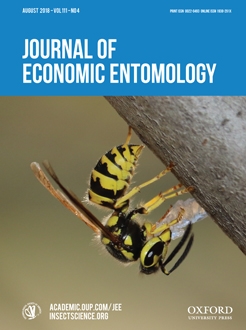The effects of cold storage temperature and exposure duration on different developmental stages of spotted-wing drosophila (SWD) Drosophila suzukii (Diptera: Drosophilidae) on ‘Campbell Early’ grapes were examined to establish a phytosanitary control method. The immature stages (eggs, larvae and pupae) of SWD were all dead after a 6-d cold treatment at 1°C and 8-d cold treatment at 1.5 and 2°C. Probit-9 estimated a fourfold increase in cold treatment duration to achieve 99.9968% mortality, compared with the observed mortality. Efficacy tests using pupae, which were the most cold-tolerant stage, confirmed the validity of the selected temperature and exposure durations. Based on these results, 1°C, which requires a shorter exposure for complete mortality, was selected for the test in conditions that mimic those of grape exportation. Six-day cold treatments at 1°C produced 99.57%, mortality in different replicates, although the surviving pupae died later. Conversely, the 8- and 10-d treatments at 1°C showed 100% mortality, suggesting that these treatments can provide quarantine security against infestations of SWD on exported Campbell Early grapes, although an additional experiment with an increased sample size is required for further reliable conclusion.
How to translate text using browser tools
30 May 2018
Phytosanitary Cold Treatment of Spotted-Wing Drosophila, Drosophila suzukii (Diptera: Drosophilidae) in ‘Campbell Early’ Grape
Min Jee Kim,
Jong Seok Kim,
Jun Seong Jeong,
Deuk-Soo Choi,
Jinyoung Park,
Iksoo Kim
ACCESS THE FULL ARTICLE
It is not available for individual sale.
This article is only available to subscribers.
It is not available for individual sale.
It is not available for individual sale.

Journal of Economic Entomology
Vol. 111 • No. 4
August 2018
Vol. 111 • No. 4
August 2018
‘Campbell Early’
cold treatment
Drosophila suzukii
mortality
quarantine




